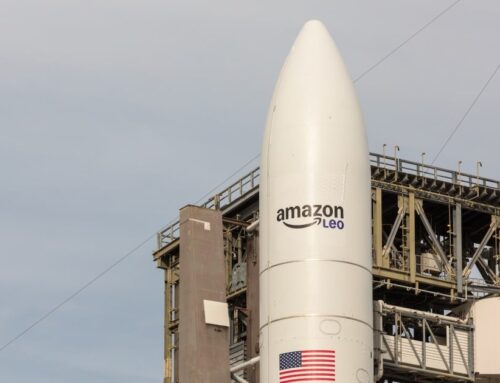Trump hates wind power. But these Texas Republicans are embracing it
May 27, 2025
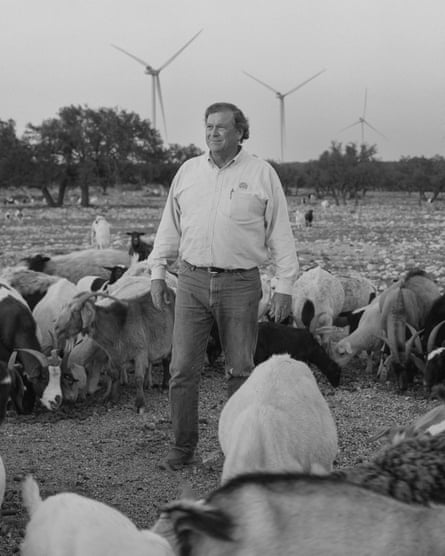
As a Republican state lawmaker for 16 years, a Texas rancher and a staunch supporter of Donald Trump, John Davis’s conservative credentials are impeccable. But Davis has become horrified at his party’s assault upon an increasingly vital lifeline to many rural, conservative areas of the US – clean energy development.
Davis allowed seven wind turbines to be situated on his ranch, in the rolling hill country near Menard, west of Austin, and has seen the income provide opportunities not only for his family but also his local community in what is one of the poorest counties in Texas.
But a barrage of bills working their way through the Republican-held Texas legislature threaten to reverse the state’s position as the US’s clean energy superpower, even curtailing cherished private property rights by limiting a landowner’s ability to host wind and solar farms.
The bills come as Trump has ramped up anti-renewable rhetoric on the national stage, calling wind turbines “ugly” and “disgusting” and barring major clean energy projects on federal lands and waters. “We don’t want windmills in this country,” Trump, who has enjoyed strong electoral support from farmers, said shortly after being inaugurated as president.
This backlash has left many conservatives, such as Davis, bewildered, with recent polling showing that most Republican voters in Texas oppose moves to squash the state’s booming renewable energy sector. While climate campaigners see renewables as a crucial replacement for the fossil fuels that are overheating the planet, places such as Menard county, Texas – where Trump won more than 80% of the vote in last year’s election – are more inclined to weigh other factors.
“We’re supposed to be the party of common sense but we’ve shifted to be like the Democrats and that is what makes me mad. When you tell me what to do on my own property that sounds more like a Democrat,” Davis said. “Some of the bills they are trying to pass would kill renewables.”
Davis retired as state legislator in 2015 to spend more time on his ranch but has lately been donning a suit and traveling back to Austin to urge his former colleagues to reject the anti-renewables bills. “I testify as a conservative and say: ‘What are you guys doing? Have you lost your mind?’” he said. “Some of these bills are attacking battery storage of all things. How dumb is that? It’s sacrificing your core conservative value principles in order to protect the oil and gas industry.”
Texas’s traditional image may be of cowboy hats, steers and nodding oil wells, but in reality, the state today could just as easily be associated with solar panels, windmills and Teslas. Texas’s combined wind and solar power output is nearly double that of its closest rival, California, it tripled the amount of new battery storage added last year compared to 2023 and is leading the way in emerging alternatives such as geothermal. This year, a third of all new renewable and storage projects in the US will be built in the Lone Star state.
“We are still firmly an oil and gas state and producing more than we ever have but that’s not the full picture,” said Joshua Rhodes, an energy expert at the University of Texas. “We produce and consume more energy than any other state, we have more wind than the next four states combined and regularly have more than 50% of our grid running on renewables. We are an energy state.”
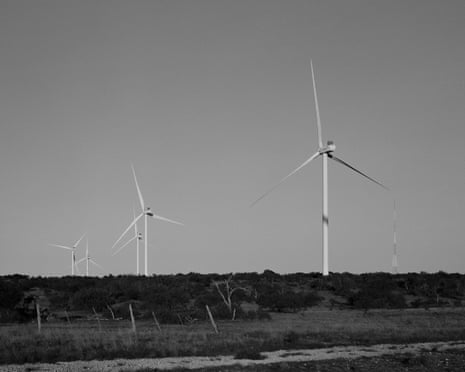
The stampede of new renewables has helped state energy demand that, fueled by data centers, is growing for the first time since the 1960s. It has also generated cash for struggling rural areas. Rhodes’ research has found existing clean energy projects in Texas will pay more than $12bn in taxes to communities where they are located, funding schools, roads and hospitals, while paying out another $15bn to landowners to lease their properties.
“It’s a hard life out here, there’s rocks, mesquite and coyotes and not a lot else – if there’s anything to make life easier, do it,” said Davis as he stood on his property under the whooshing blades of a wind turbine, one of a ragged line of turbines that make up the Cactus Flats wind project. “See any dead birds here? I’ve never seen one,” added Davis, in reference to one of the most common complaints, voiced by Trump himself, about wind turbines.
Places such as Menard, located in central Texas between two large oil and gas regions, have limited options for new income. Davis has several hundred goats and sheep and raises cattle for wagyu beef on his 1,300-acre property, but 40% of his income now comes from the wind turbines, money he hopes he can push back into the sleepy Menard community.
“I struck wind!” said the ebullient Davis, who likes to restyle Trump’s “drill, baby, drill” mantra into “turn, baby turn” in recognition of his wind turbines. “I done turned the money into my back ass pocket,” he said.
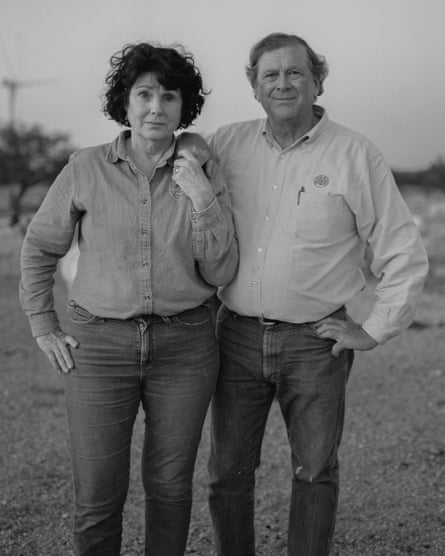
Some locals still dislike the sight of wind turbines puncturing the prairie, with even Davis initially put off by them. “I think they look angelic now,” he said. Another nearby rancher, Hoppy Murchison, who has a drooping handlebar moustache, cowboy hat and checked shirt, is less enamored with their appearance and mostly subscribes to Trump’s worldview.
“But for me it made too much sense to not do it,” said Murchison, who now has several wind turbines on his own property, providing him a stable income. “I don’t think we can become totally dependent on renewable energy, but anything will help because we will run out of oil and gas at some point.”
For leaders of poorer counties such as Menard, the aesthetics of wind turbines are beside the point. “I literally have hungry children in my community, so I’m not turning my nose up at any kind of financial windfall,” said Brandon Corbin, the local Republican county judge. Corbin estimates that a proposed battery facility in the county could add as much as 30% to Menard’s stretched annual budget of $5m.
“It’s not productive or helpful when he spouts off like that,” Corbin said of Trump’s comments on wind and solar. “We are the ones on the ground here and he says and does things that puts fear and uncertainty out.”
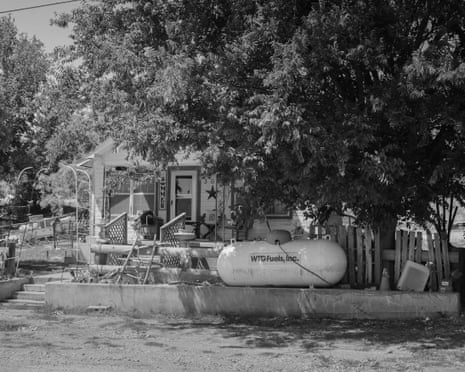
But senior Republicans in Washington have sought to ape Trump, pushing forward a budget plan that strips away incentives for clean energy and electric cars. Meanwhile, in Texas, there are three state bills that would severely restrict any new wind or solar installations.
One that has already passed the Texas senate, SB819, calls for the “police power of the state” to drastically limit new wind and solar projects by requiring permits not needed for gas, coal or nuclear plants. A wind turbine would have to be 3,000ft from a neighbor’s property line, compared to just 467ft for an oil well.
“I’ve heard from many constituents with valid concerns regarding the reckless installation of these facilities,” said Lois Kolkhorst, a Texas state senator and one of the bill’s sponsors. Kolkhorst, a Republican who calls herself a “lifelong wildlife conservationist” said the legislation will provide “a reasonable approach to the recent proliferation of wind and solar facilities encroaching across Texas with no consideration or safeguards for landowners or the environment”.
While most Republicans don’t share such enmity towards renewables, Kolkhorst has some powerful and wealthy allies, including the Texas Public Policy Foundation thinktank and the Stewards of Texas group, which opposes new clean energy development. The latter group has ties to Dan Friedkin, a billionaire businessman whose interests include owning hotels and whose roles include being the executive producer of the Paramount show Landman (which includes a notable scene critiquing clean energy) as well as being the owner of soccer clubs Everton and Roma.
“Renewable energy has a role in Texas’s energy landscape, but it must be managed responsibly to ensure that our state’s most cherished outdoor spaces are not adversely affected,” a spokesperson for the Friedkin Group, on behalf of Friedkin, said.
Critics of the bills, though, argue that they are counterproductive political posturing designed to aid an oil and gas industry that feels threatened by the rise of renewables. Should the bills pass, 15% of Texas’s wind fleet could shutter, raising energy prices to the point that the typical household’s electricity bill would increase by $225 a year, according to one estimate.
“This would be extremely damaging to renewable energy and damaging to the whole Texas economy,” said Doug Lewin, a leading Texas energy industry expert.
“We desperately need new energy supply, and if we’re saying, ‘No, we don’t want the sources that can be deployed the fastest’ for ideological reasons, then the economy will stagnate.
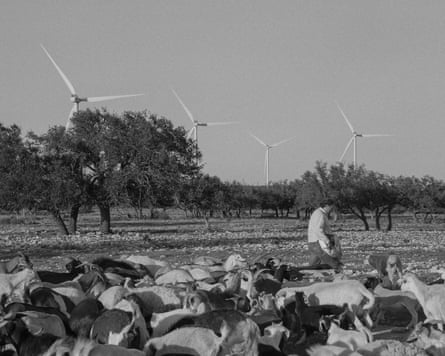
“Some people have just decided that renewables are bad and they will fight them. To point at solar panels as an environmental problem when we have so many abandoned oil wells in Texas is just absurd.”
While the fate of clean energy support in the federal budget will come down to how many moderate Republicans will fight to preserve the investment flowing to their districts, in Texas the main decider could be time itself. The Texas legislative session ends on 2 June and should the bills get gummed up enough in the system, Davis hopes they will be beaten by the clock, at least until next year’s session.
“The system is set up to kill bills, to have less government,” he said. “So there’s a lot of advantages we have to kill these bills. We want to keep them bottled up. Delay, delay, delay.”
Search
RECENT PRESS RELEASES
Related Post


